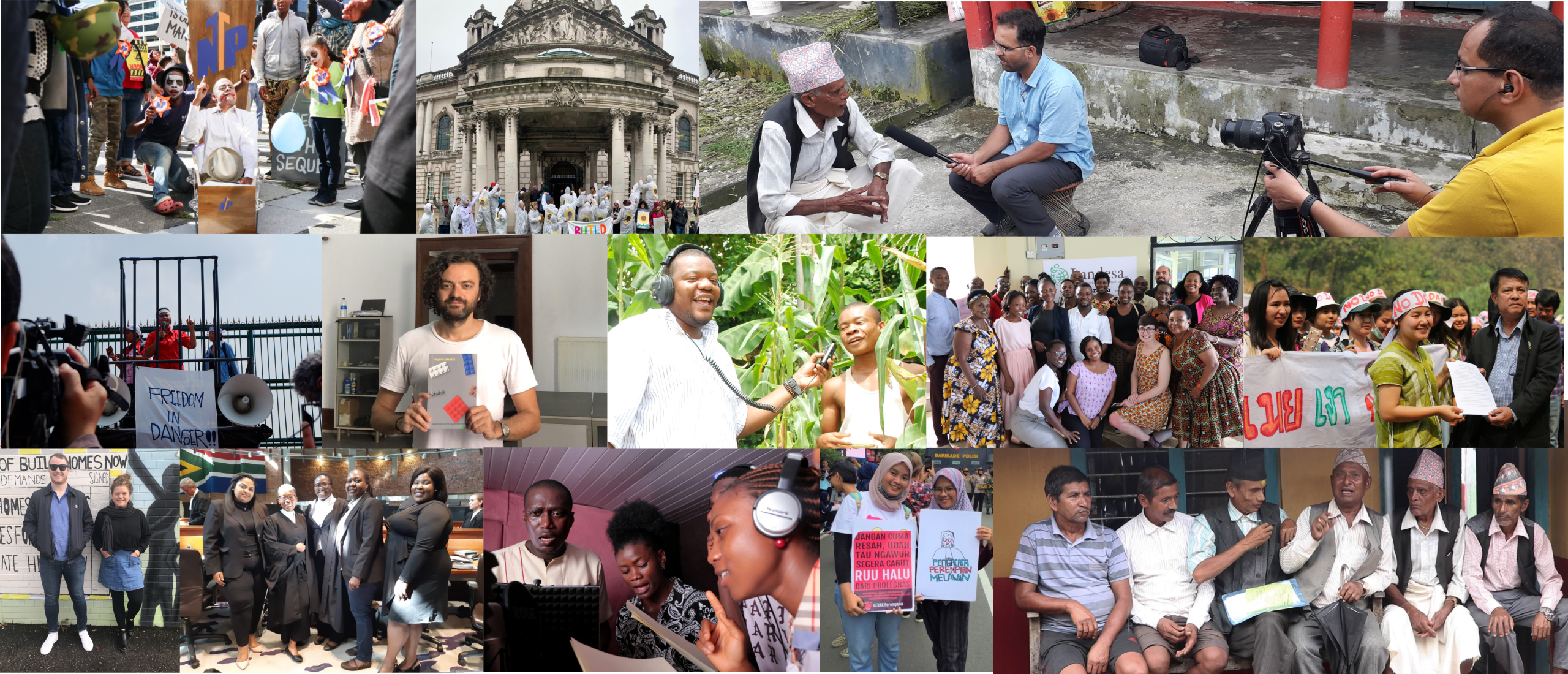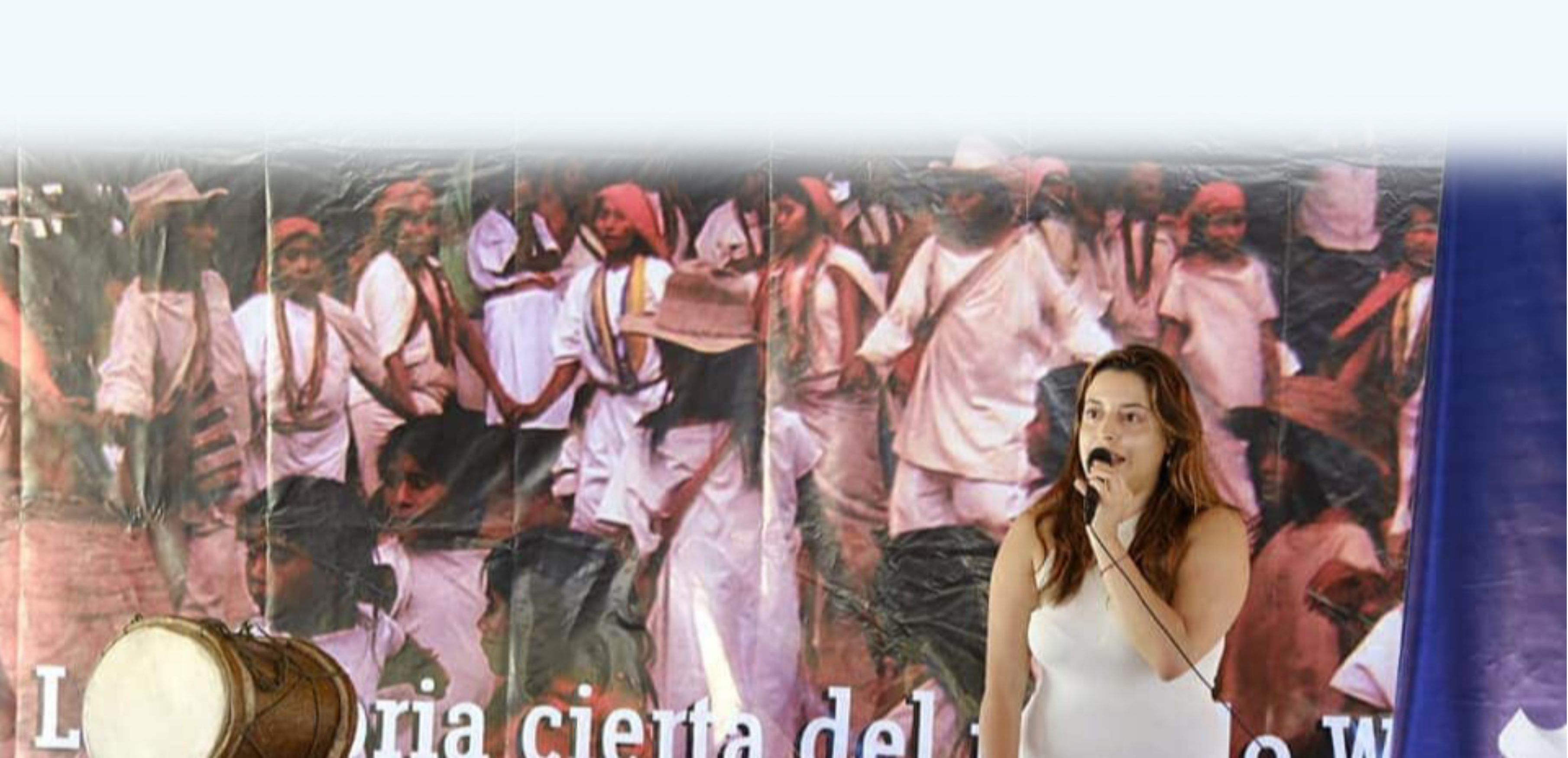Maria Paula Lemus
Colombia

Through the Memory School initiative, Bertha Justice Fellow Maria Paula Lemus and CAJAR’s work with communities supports the peace process in Colombia – reconstructing the facts of human rights violations that underpin criminal casework and community-level reparations.
In 2016, Colombia became the first conflict zone to bring victims to the negotiating table and formalize the recognition of victims’ rights. After 52 years of conflict, a peace agreement was signed, and victims’ rights were guaranteed through the Comprehensive System of Truth, Justice, Reparation and Non-Repetition (SIVJRNR). As drivers of the peace process, Colectivo de Abogados “José Alvear Restrepo” (CAJAR) aided in the development of the Memory School initiative, which aims “to help uncover the truth and construct a collective narrative of the conflict and its causes, by using the voices of victims and consolidating peace with guarantees of non-repetition.” – PBI Colombia
Maria Paula Lemus, a Bertha Justice Fellow at CAJAR, serves as a lawyer in the training team responsible for developing Memory School session methodologies that feed into judicial and non-judicial processes. She works on the peace process through criminal casework and submissions to local truth commissions, supported by her work with communities and reports based on findings from Memory School initiative sessions. The reports produced from these sessions rely on extensive investigative work with whole communities, enabling reconstruction of facts and the identification of reparation measures.
In 2019, Maria Paula carried out four Memory School sessions with four communities of the Wiwa Indigenous people (“the Wiwa”), who live across the isolated mountain range of the Sierra Nevada de Santa Marta. The sessions began with an explanation of the peace agreement and mechanisms. They then moved onto action participation methodology, which explores questions that act as starting points in the construction of a record of human rights violations. Questions included: “Why do you think this happened in your territory? Who benefitted from these events? Why do you think no one acted to avoid the events?”
.

.
As a part of the construction process, social territorial mapping tools are used that can help locate environmental damage. Alongside this, participants use artistic expression, which can include drawing silhouettes to identify physical, mental and emotional impacts. The third session envisioned what redress and non-repetition might look like. In order to identify the differentiated impacts on Wiwa women, Maria Paula and the team held a fourth session with a gendered approach to establish reparation measures for women and girls.
After the sessions, the Wiwa and CAJAR delivered “The True History of the Wiwa People” report to the SIVJRNR. It addressed the serious human rights violations that occurred between 1990 and 2017, naming military, paramilitary groups command units and corporate interests, and providing evidence of disproportionate, systemic targeting of the Wiwa and similar Indigenous groups. In the report, the Wiwa asserted their rights as guardians of their ancestral lands and outlined the region’s natural and mineral riches that made it a strategic target for the private sector and the illegal narcotics trade. The report recommended concrete actions to hold those in power to account.
Once this report has been agreed as national record through SIVJRNR, there is no place for perpetrators to hide. CAJAR lawyers can present the documented truths and impacts detailed in reports like “The True History of the Wiwa People” in hearings at criminal proceedings, at the national and international levels.
In February 2020, Maria Paula and the community leaders ran workshops to report back to the Wiwa communities. Casework continues, with the first sentencing nationally due to start in late 2020. At the core of the Bertha Justice Fellowship is the idea that lawyers serve the people who make up the movements. In Maria Paula’s work, we see the resistance of communities, and – with a groundbreaking, victim-centered systematic response – the inherent power of the people to transform their country.

CREDITS
Photo 1: Territorial mapping during a Memory School session with the Wiwa people. Image: Pueblo Wiwa/Memory School
Photo 2: Memory School workshop with Wiwa People. Image: Pueblo Wiwa / Memory School
This story was originally published in the Bertha Fellows book and some of the information in this story may have changed since it was first published.


 Built with Shorthand
Built with Shorthand